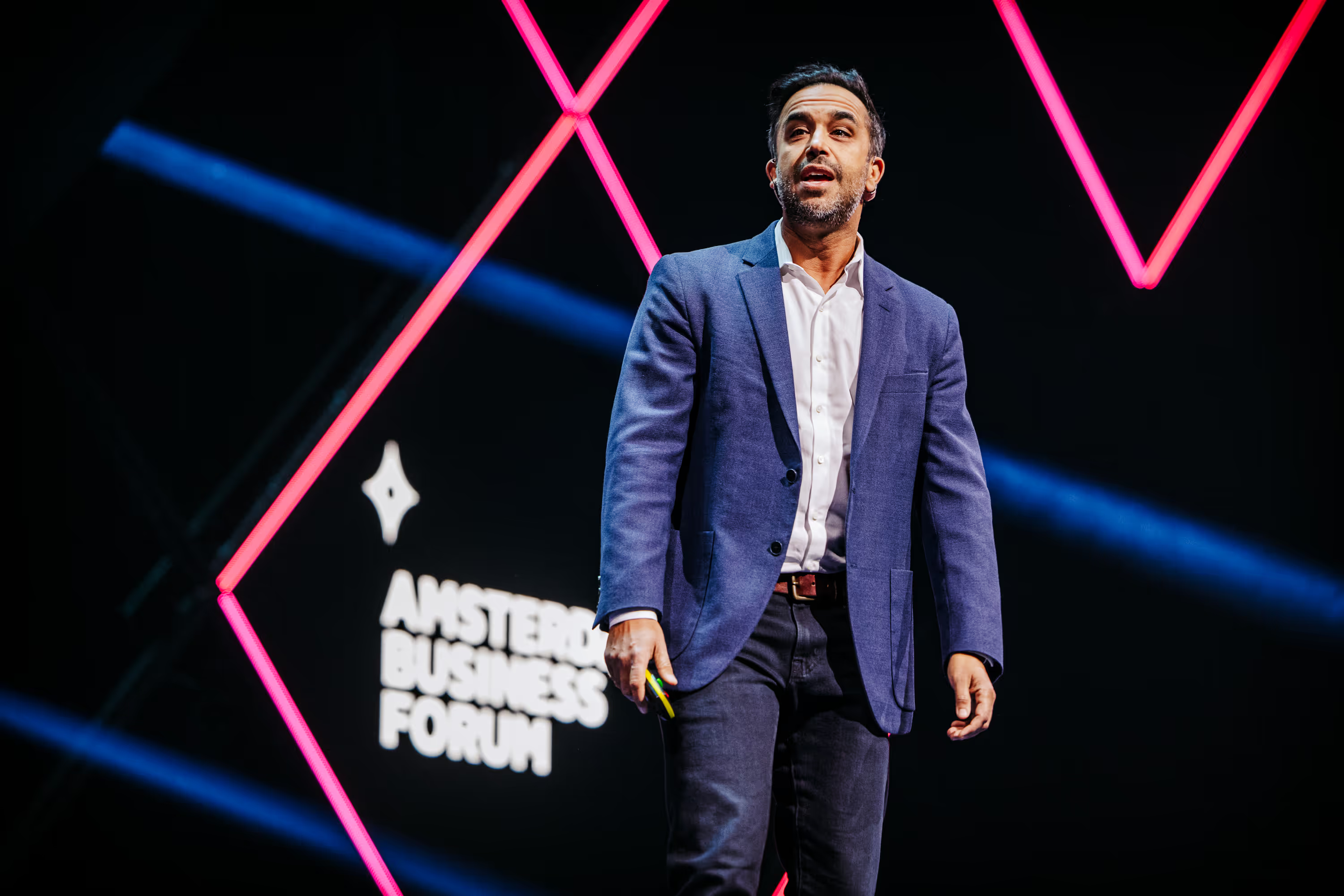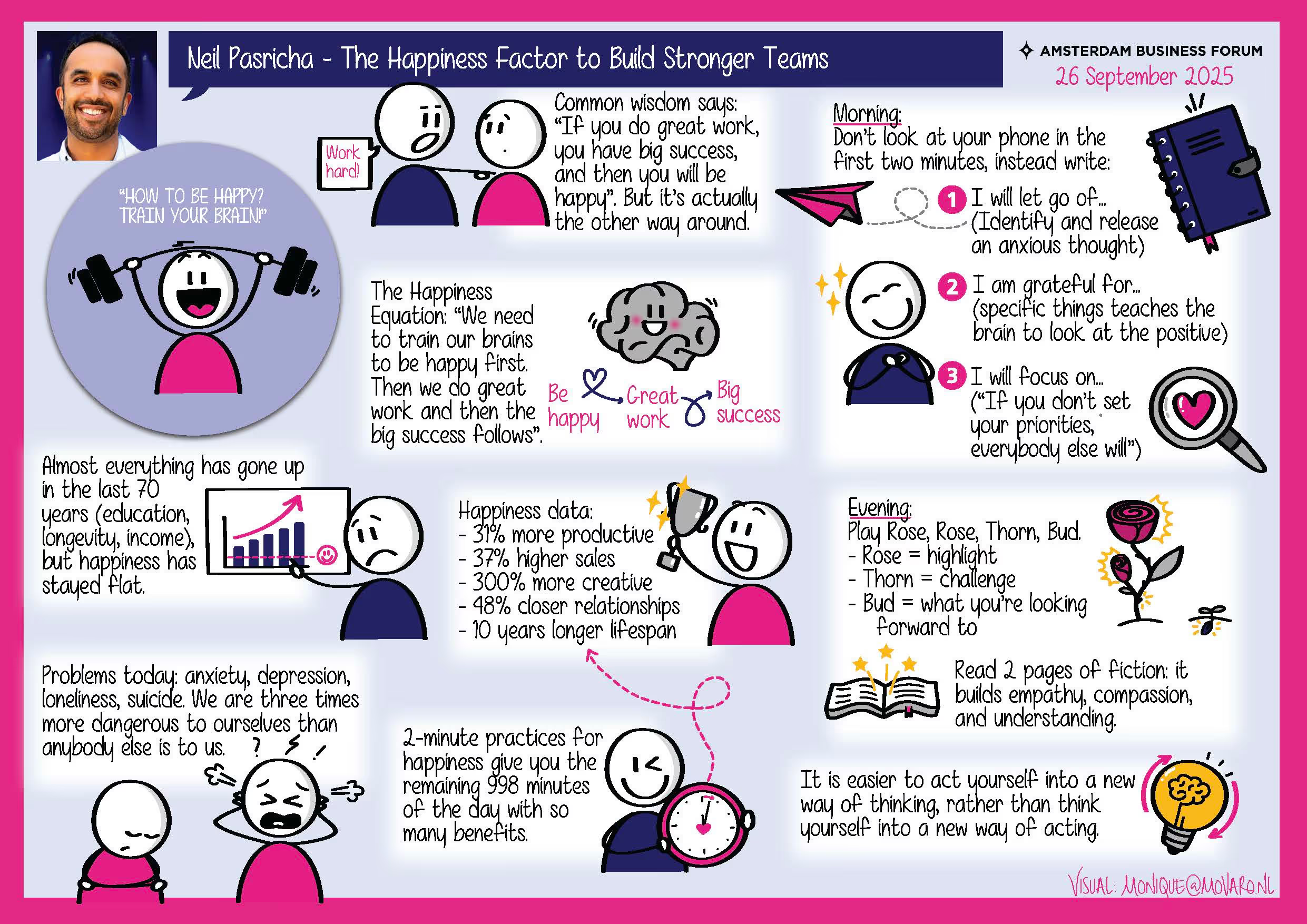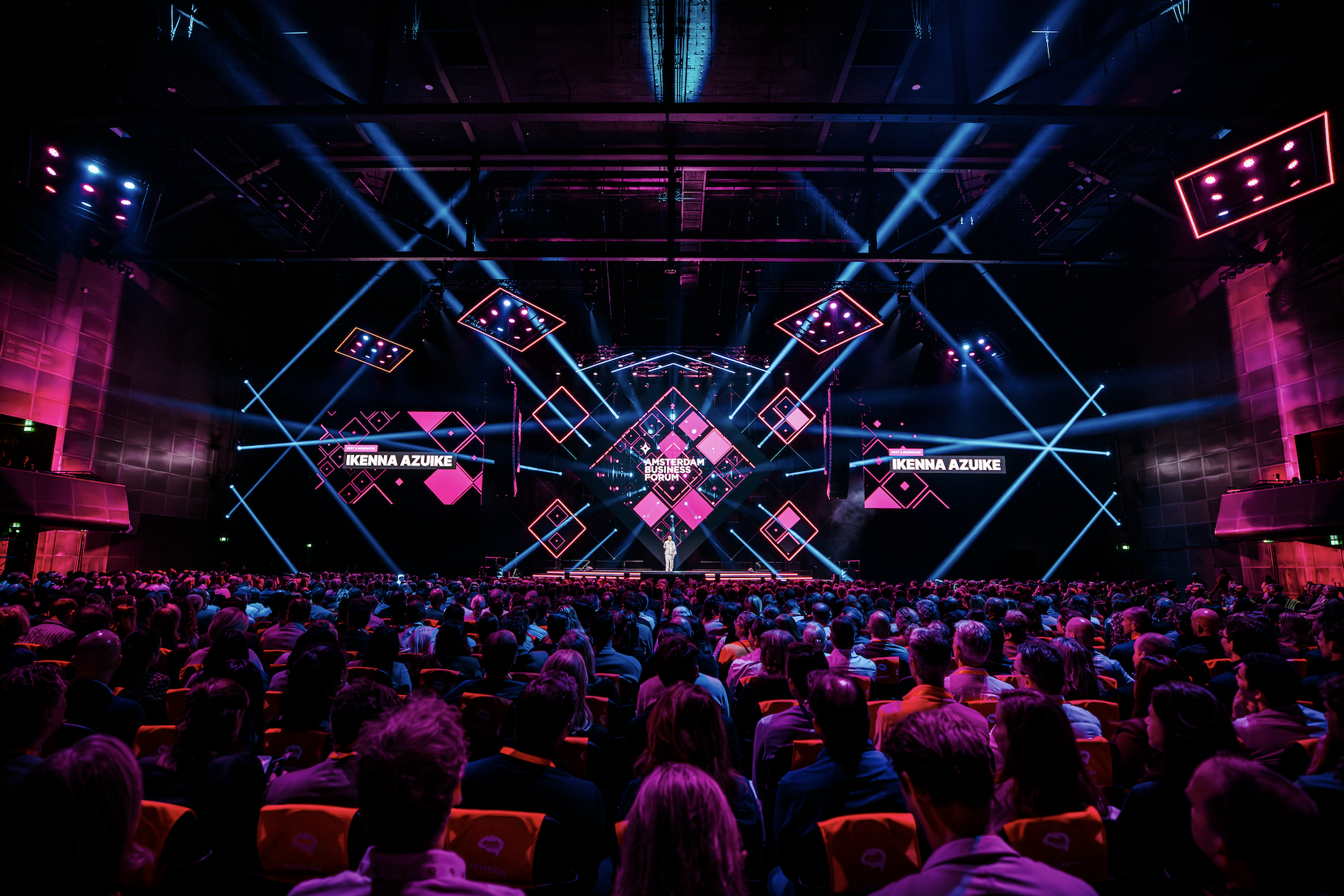Think success brings happiness? Neil Pasricha proves you wrong
At Amsterdam Business Forum 2025, bestselling author and positive psychologist Neil Pasricha flipped the script.

We’ve been told the story for decades: work hard, achieve success. Then, you’ll be happy. Logical? Maybe. True? Absolutely not. At Amsterdam Business Forum 2025, bestselling author and positive psychologist Neil Pasricha flipped the script.
With personal stories, decades of research, and practical optimism, he made his point crystal clear:
“Be happy first. Then you’ll do great work. Then success follows.”
That single shift could transform how you lead your team. And how you live your life.
Why happiness can’t wait until after success
Neil opened with a simple but telling question: what’s the most searched phrase on Google starting with How to be …?
The answer wasn’t rich. Not successful. Not famous.
It was happy.
And yet, despite rising living standards, happiness levels are falling. Anxiety, depression, and loneliness are at record highs. Suicide now outpaces homicide globally by a factor of three.
Still think happiness is a luxury?
Key takeaway: happiness isn’t optional. It’s foundational.
Why the happiness equation is broken
We’ve been taught this model:
Great work → Big success → Be happy
But Neil turned that model around:
Be happy → Do great work → Big success
And he’s got the data to back it up. Happy employees are:
- 31% more productive
- 37% better at sales
- 300% more creative
- 50% more likely to get promoted within a year
Even longevity follows the same pattern. A landmark study from the University of Kentucky showed that happier nuns (yes, actual nuns) lived 10 years longer than their less optimistic peers.
Key takeaway: happiness isn’t a reward for success. It’s a strategy to achieve it.
Two practical shifts you can start tomorrow
So how do you actually build happiness into your day? Neil shared two practical rituals that you can use right away.
Ritual #1 Two-minute mornings
Every morning, take two minutes to write down three things:
- I will let go of…
Neuroscience shows naming your anxieties weakens their grip. - I am grateful for…
The more specific, the better. My wife is vague. My wife making me coffee this morning sticks. - I will focus on…
One clear priority beats a cluttered to-do list.
Two minutes of writing can shift your mindset for the whole day. And over time, it rewires your brain to notice the good more than the bad.
Ritual #2 Protect the bookends of your day
Neil didn’t just focus on mornings. Evenings matter too.
He warned us about the hidden cost of screen time before bed. One hour of bright light at night suppresses melatonin and wrecks sleep quality. His challenge? Put your phone away one hour before bed.
Then, try these two rituals:
- Play Rose, Thorn, Bud
One rose = one good thing today. One thorn = one challenge. One bud = something to look forward to. - Read two pages of fiction
Fiction boosts empathy and emotional intelligence. The skills AI will never replace.
Leading with happiness
Neil’s message is not about ignoring hardship. It’s about starting from a place of happiness, so you can handle the challenges better. When you protect your mindset, you multiply your impact.
So, stop chasing happiness at the end of the race. Start with it.
And in doing so, you’ll not only lead better—you’ll live better.
Five questions for reflection
- How might leading with happiness change the way people experience working with you?
- How does your current “happiness equation” look, and does it need flipping?
- How can you protect the bookends of your day from screens and stress?
- Which small ritual could boost connection in your team?
- What could your version of “two-minute mornings” be?
Visual recap




